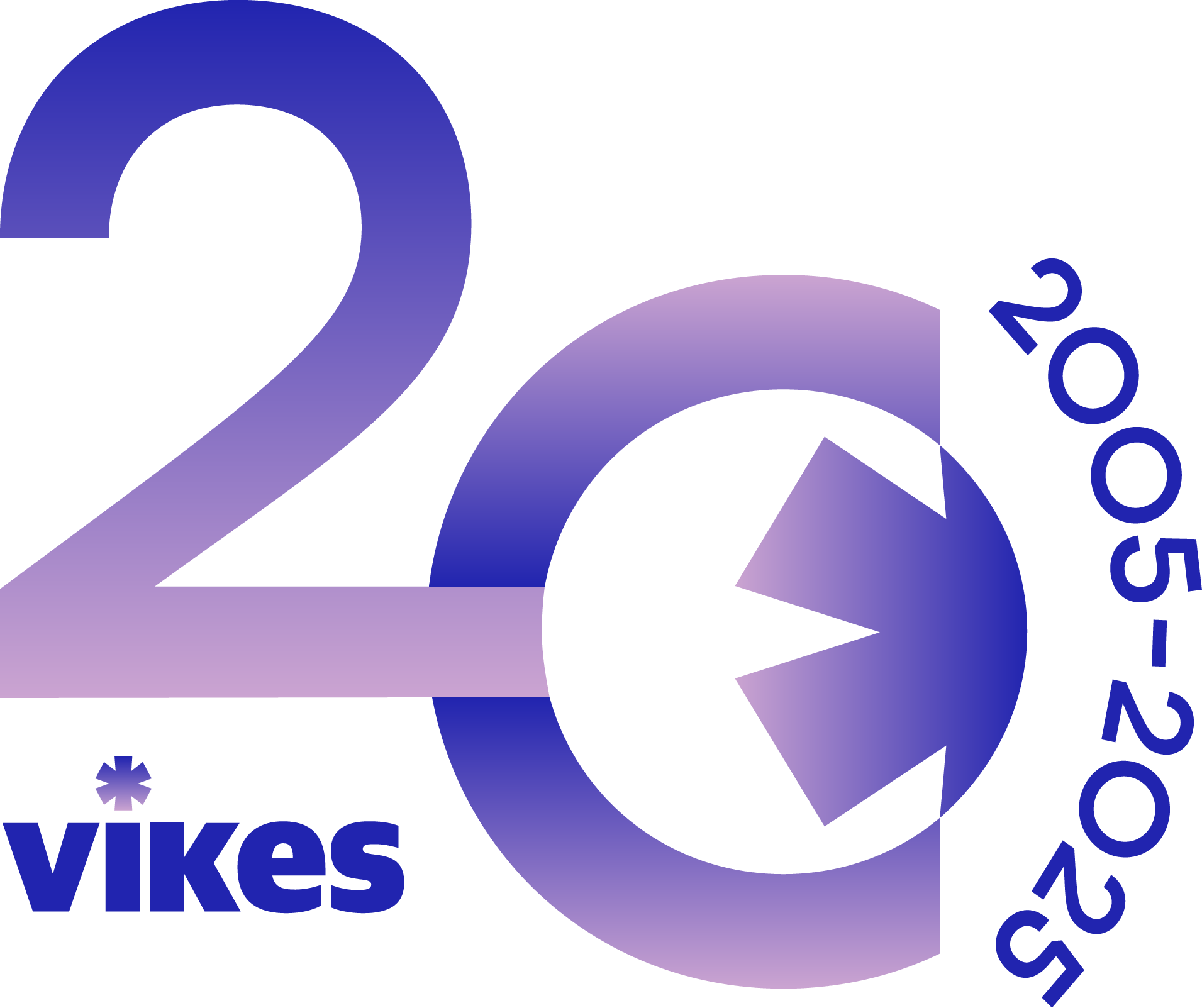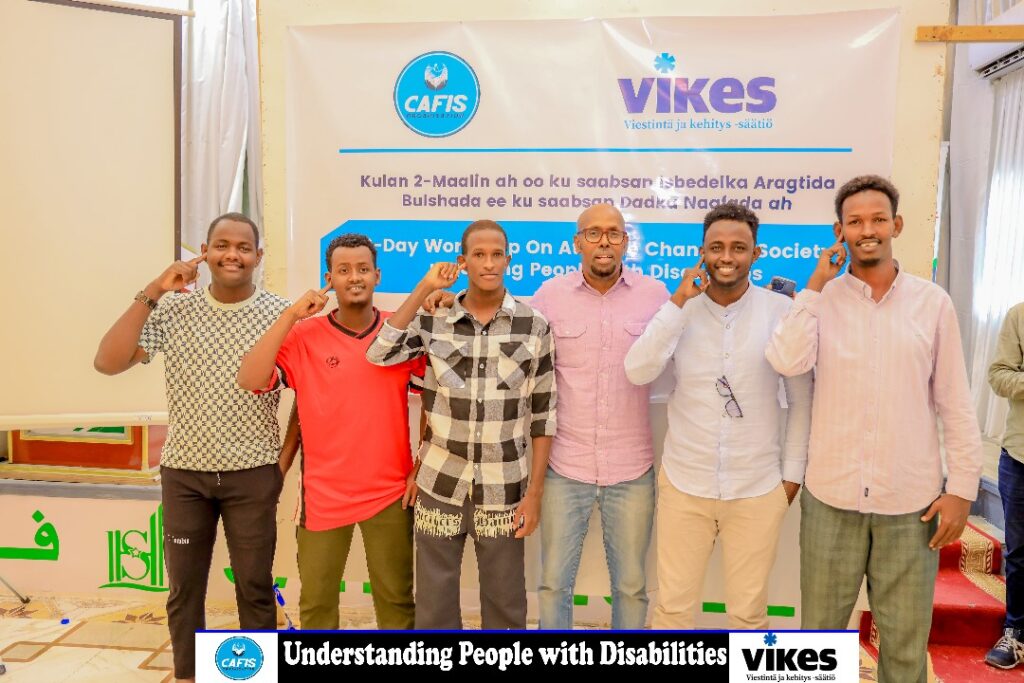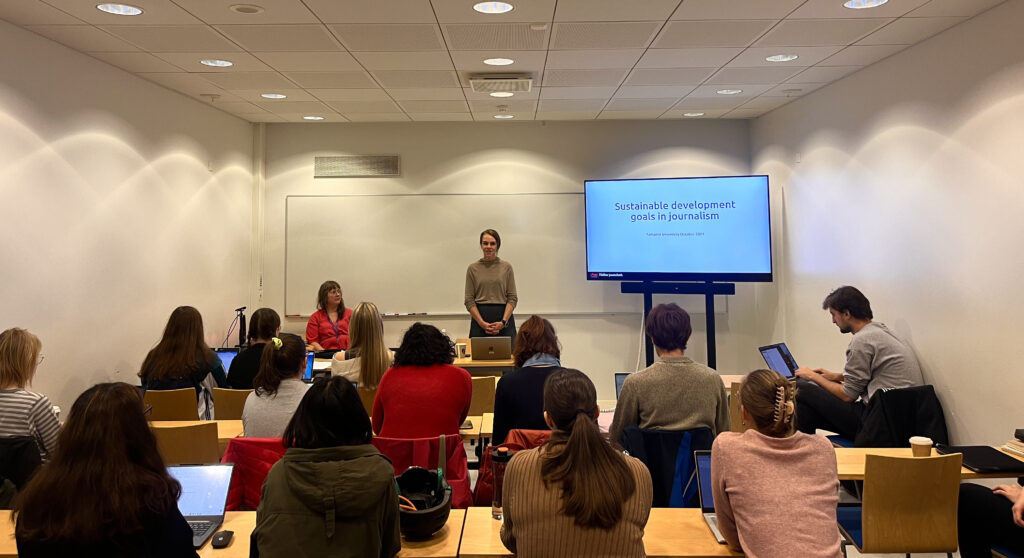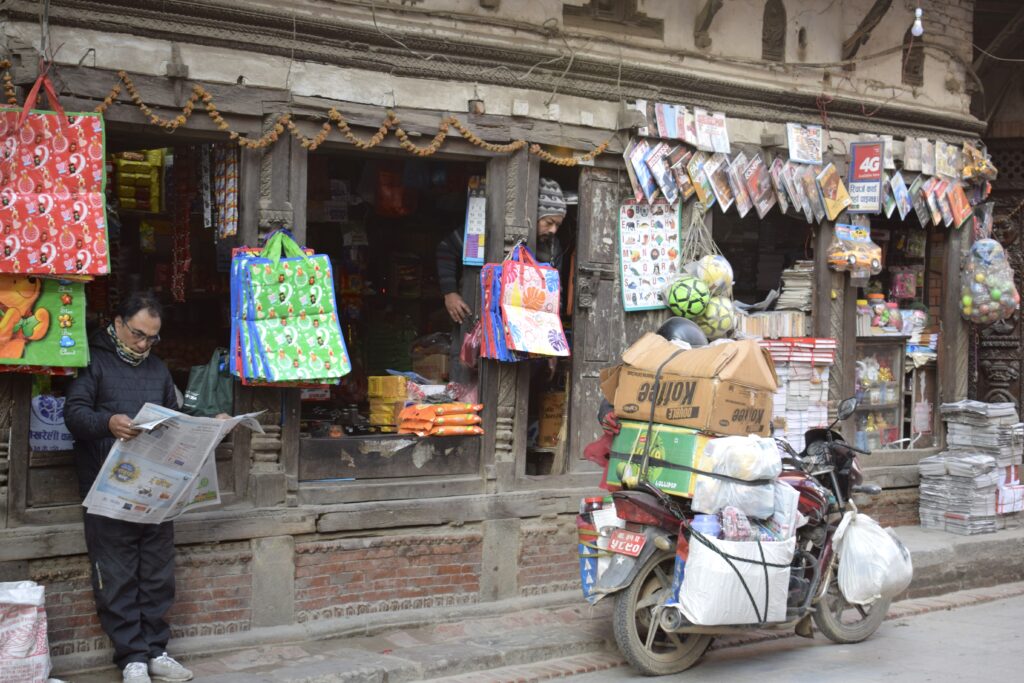Lectures and workshops at Turku University of Applied Sciences deepened the journalism students’ knowledge of sustainable development. In 2022, the project will move to Helsinki.
At Turku University of Applied Sciences, the participants delved into the crisis of democracy under the guidance of Mikko Leino, a researcher at the University of Turku. Photo by Esa Salminen Vikes’ global education work in Finland in 2021 focused on students at universities of applied sciences.
In the autumn, 32 students took part in the course “Media as a promoter of sustainable development, freedom of expression and democracy”, which had been prepared in the spring. 16 of them attended the workshops after the lectures.
The lectures focused on sustainable development, freedom of expression, freedom of the press and democracy, how global phenomena are visible in Finland and how journalists can promote sustainable development without losing their own integrity.
The course was held at Turku University of Applied Sciences, but the lectures were also attended remotely by six students from Haaga-Helia University of Applied Sciences in Helsinki. In spring 2022, a similar event was organised at Metropolia University of Applied Sciences.
The project is run in collaboration with the news portal Maailma.net, and 11 student stories on different themes of sustainable development and one podcast were produced after the workshops. They were published on the Maailma.net website (Oneworld Finland).
Inspired by the project, the responsible teacher of journalism at Turku University of Applied Sciences organised a second workshop on the same topics in early 2022. Three articles from this workshop were published on Maailma.net.
The stories reached just over 3000 readers immediately after publication, but the numbers will increase in 2022 when the stories are promoted. According to the feedback form accompanying the stories, more than 70% of respondents said that the stories increased their understanding of sustainable development.
Students praised a much-needed course
Based on feedback from students, there is a need for this type of training.
“The best part was the clear opening and in-depth discussion of the link between freedom of expression and democracy,” said one student.
“I think this course was one of the best courses I’ve done in the last year,” said another.
The students praised the diversity of the lecturers and the fact that the workshop leaders were very engaged.
Reasonable baseline data
Teachers in the polytechnics felt already at the planning stage that the module would be a welcome addition to their teaching, as a broad understanding of sustainable development is essential to enable journalists to address societal issues.
Students had a reasonable level of understanding: in a pre-training survey, just over 40% of students said their knowledge of sustainable development was fairly or very good. Only 37.5% had heard of Agenda 2030, the UN’s Sustainable Development Goals.
In their feedback, one teacher stated that students received a comprehensive information package on the topic during the lectures, and the workshop afterwards provided further instruction and plenty of personal feedback during the story process.
“The professionalism of both the lecturers and the workshop facilitators significantly deepened the knowledge of our students. All in all, this project has been an excellent addition to our advanced studies in journalism,” said the teacher.
From Vikes’ point of view, students from universities of applied sciences were a good choice as a target group, as their starting level was moderate and their desire to learn was high. The feedback shows that everyone’s knowledge of both sustainable development and freedom of expression and democracy issues increased at least somewhat, and 77% increased a lot or very much.
The project will culminate in a seminar in Helsinki in autumn 2022. Vikes’ global education work will then become a permanent part of the Foundation’s development programme.



